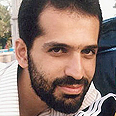
US report: Assassinations of Iranian scientists not effective
In report on Tehran's nuclear program, ISIS Institute estimates Iran won't achieve nuclear breakthrough in 2012, claims assassinations of nuclear scientists won't delay program's progress
The US Institute for Science and International Security (ISIS) issued an elaborate report on the state of the Iranian nuclear program and Western efforts to prevent the Islamic Republic from acquiring nuclear weapons.
The institute advises against assassinating Iranian nuclear scientists, in acts which have been linked to the US and Israel. Meanwhile, the Iranian deputy foreign minister commented on Prime Minister Benjamin Netanyahu's AIPAC speech and described it as "rooted in fear of the Islamic awakening in the Arab world."
Related stories:
- Obama: Premature Iran strike may cost us dearly
- Panetta: US will act against Iran if it has to
- Netanyahu: Nuclear Iran must be stopped
The report points to substantial disadvantages of "risky" strategies being employed against Iran. "Assassinations of Iranian nuclear scientists and engineers have occurred with greater frequency but should be stopped because they carry too high a risk of retaliation and involve terrorism against civilians," the report states.
"Moreover, assassinations are unlikely to be effective in setting back the nuclear program, which involves thousands of specialists and ingrained know-how."
The institute cautions that Iran might argue that assassinations are equivalent to a military attack and use this as justification for further provocations. "An under-siege mentality created by use of such tactics could motivate Iran to further degrade its cooperation with the IAEA and resist offers of negotiation," the report said.
The report also states that recent major accidents at Iranian facilities have led to speculation that countries are conducting sabotage against significant missile and nuclear-related sites. It goes on to mention a blast in a base near Tehran which left 17 people dead and an explosion at the Ghadir steelworks in Yazd.
'No breakthrough expected in 2012'
According to the ISIS report, Iran is unlikely to achieve a nuclear breakthrough in 2012 "in large part because it will remain deterred from doing so and limited in its options for quickly making enough weapon-grade uranium."
The institute lists ways in which the West can delay Iran's nuclear program including more effective legal mechanisms to stop Iran from acquiring key goods; monitoring China’s domestic enforcement of sanctions and trade controls; Better detection of Iran’s illicit procurement efforts and broader enforcement of legal mechanisms worldwide.
Other methods include increased efforts in countries of transit concern to prevent Iran from transshipping banned goods; Stepped up operations to detect clandestine Iranian nuclear activities, including heightened intelligence operations inside Iran aimed at detecting secret nuclear sites and activities and encouraging defections of nuclear program ―"insiders."
Finally, the report states that despite the risks the threat of military action can be useful to keep the pressure on the regime and draw redlines about the international community’s tolerance for major violations. "For this strategy to be effective, Iran must sincerely believe that the United States or Israel may execute a military strike if it moves to build nuclear weapons.
"However, this remains a risky strategy. If Iran believes an attack is inevitable, it may increase its efforts to develop a nuclear weapon in secret in an effort to deter an anticipated military strike. Thus, managing an implied military threat requires careful balance, attention, and consideration and an avoidance of any commitment to a pre-emptive strike."
Meanwhile, Iranian officials responded to Netanyahu's speech at AIPAC for the first time on Tuesday. Iranian Deputy Foreign Minister Hossein Amir-Abdollahian told IRNA that Netanyahu's remarks against Iran have their roots in the fear of the Islamic Awakening in the Arab world.
The Iranian diplomat said, “Baseless claims and remarks by the leaders of the Zionist regime about our country’s peaceful nuclear program and (threats of) military action on Iran signify their deep fear of the awakening of regional nations.”
- Receive Ynetnews updates directly to your desktop










